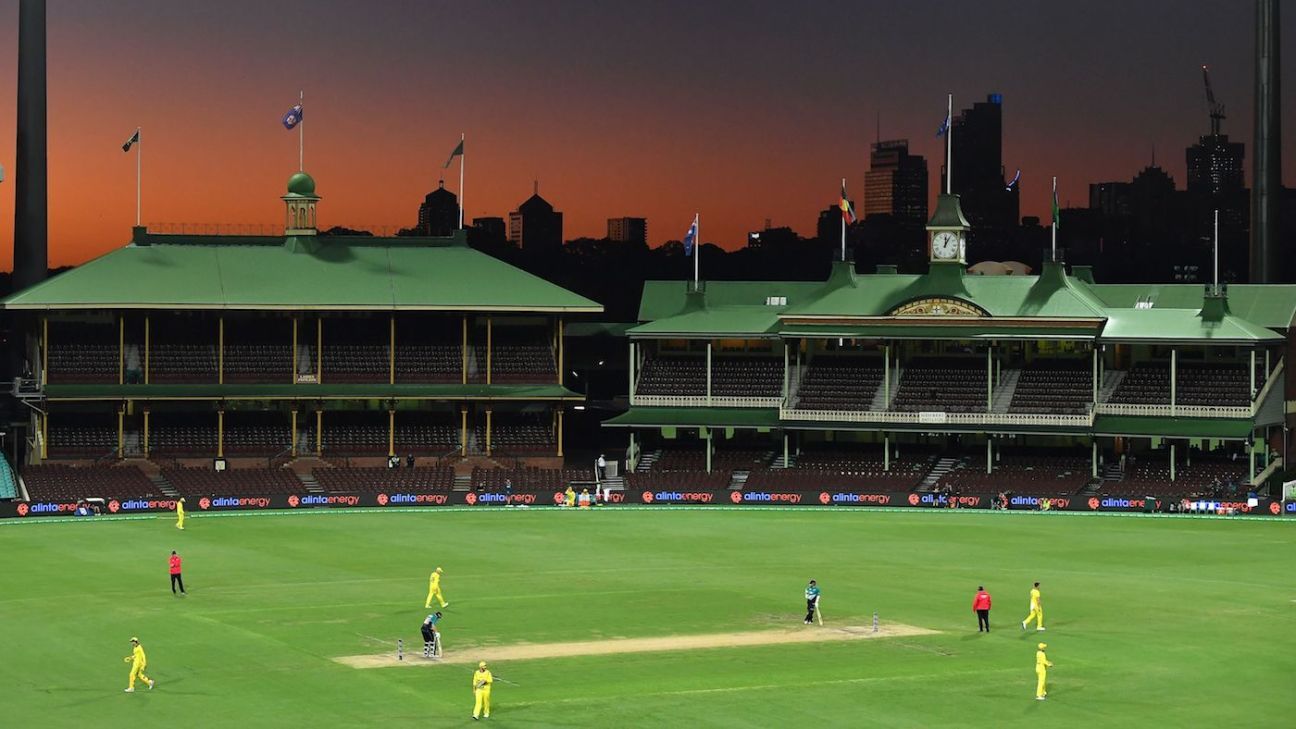
International cricket of some kind in the next Australian summer is probable, the domestic Big Bash League and WBBL are highly likely and even the men's T20 World Cup remains a chance of happening.
These are among the views that may be drawn from a report issued to Cricket Australia and the state associations by CA's chief medical officer Dr John Orchard last week. While the report is believed to be cautious in its wording and stresses the possibility of backward steps should the coronavirus spike again in Australia, games of non-contact sport such as cricket may well be able to be played again as soon as the second half of Australia's winter months. This would be in line with reports that the AFL is preparing to resume its competition around August.
If current measures to "flatten the curve" of cases in Australia maintain their course, government restrictions should be eased in time for cricket to be able to resume for the next home summer, meaning the major doubts around the fallout from coronavirus will surround international travel bans and how badly the pandemic has hit different countries.
All cricket nations are watching closely to see how the virus evolves in India, with Virat Kohli's side due to play their next Test series in Australia in December and January. A cancellation would likely cost CA somewhere in the region of A$300 million in lost revenue.
ALSO READ: Australia stars prepared for pay cuts, says Tim Paine
Domestic cricket, namely the W/BBL, Sheffield Shield, One-Day Cup and Women's National Cricket League, could resume more or less as regularly scheduled at the outset of the Australian season. The international outlook is cloudier, although tours of Australia may be able to go ahead as planned provided the visiting teams are able to undergo two-week quarantine periods either before or after touching down.
This scenario makes the T20 World Cup, currently set down for October and November, a complicated but not impossible task. CA and the ICC will need to make a call on this event much sooner than other bilateral fixtures, possibly as early as June. Further uncertainty surrounds the point at which elite sport in general and cricket in particular will again be able to be played in front of large crowds. It is possible that the entire season will need to be played in empty stadiums, something the organisers of January's Australian Open tennis are also reportedly considering in their plans.
Beyond that, tours by Afghanistan - for their inaugural Test against Australia - and India are simpler affairs in so far as only featuring the need for one squad of players and staff to arrive in Australia before travelling domestically within the nation's borders. CA's chief executive Kevin Roberts has not spoken publicly about coronavirus and CA's response since March 16, but a spokesman confirmed the provision of regular updates on the state of play within the organisation.
"Cricket Australia - like all sporting bodies - is devising various frameworks for a return to training/play in anticipation of the government lifting COVID-19 restrictions in future," he said. "No one is certain when return to training/play in Australia will be possible at this stage and many scenarios are being considered. Cricket Australia will continue to seek advice from medical experts and relevant government agencies to ensure the health and safety of our community, players, coaches, staff and volunteers."
Broadcasters have continued to plan for a full suite of international and domestic cricket next summer, and are believed to have a strong preference for India's tour in particular to take place during the summer months. There will be added complications for both Seven and Fox Sports in terms of looming clashes between cricket and the currently delayed football seasons.
Other cricket that may be able to be played includes the currently postponed matches between Australia and New Zealand, which were called off after one of three ODIs had been played at a spectator-free SCG. A subsequent T20 series to be played in New Zealand may also be slotted in once cricket is cleared to resume.
The scenarios outlined by Orchard are understood to paint a cautiously optimistic picture for cricket in Australia, certainly relative to those currently being dealt with by the winter football codes and also by the ECB, where the entire season remains in doubt. This year's IPL is in similarly uncertain territory, both for its start date and the chances of overseas players being able to participate.
In terms of CA's balance sheet, which at the time of last year's annual report featured A$26 million in cash reserves plus another A$90 million in investments, the likelihood is that the game will remain well and truly in the black, keeping in mind also that the governing body's revenue is comfortably above projections. Even so, CA has reportedly sought a line of credit to the tune of A$200 million from the banks as insurance for the pandemic taking a bigger chunk out of next season, while also drawing up scenarios for the losses of 25%, 50% or 100% of projected revenue.
Despite the largely hopeful tidings contained in Orchard's report, there is the possibility that CA will still seek to tighten purse strings in terms of distributions to the state associations and also payments to players over the next 12 months, to shore up the game's cash reserves in case the next "rainy day" does not arrive so obligingly at the tail end of a summer.















 Phone: (800) 737. 6040
Phone: (800) 737. 6040 Fax: (800) 825 5558
Fax: (800) 825 5558 Website:
Website:  Email:
Email: 






